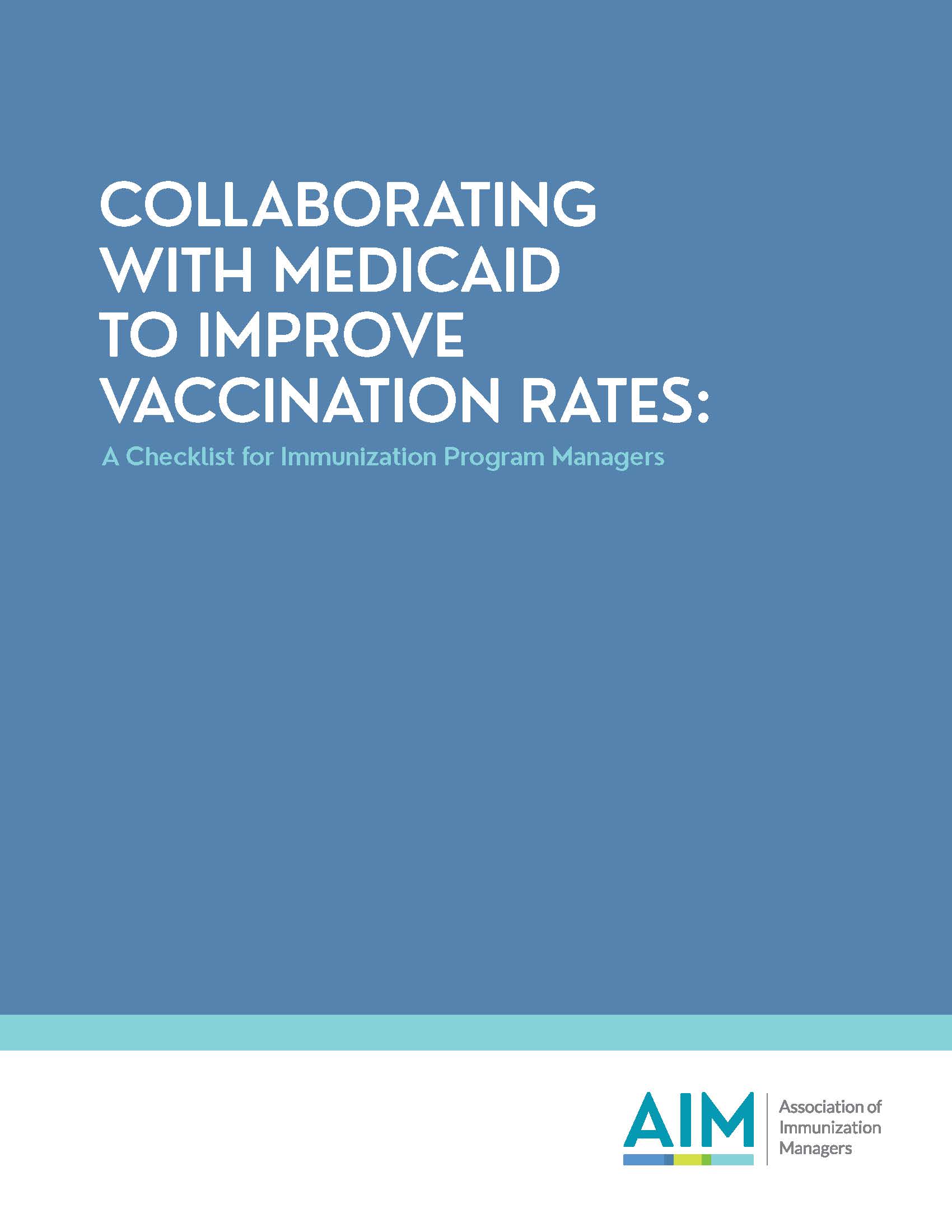This checklist provides suggestions that immunization programs can use to build mutually beneficial partnerships between Medicaid and immunization programs and overcome existing and new barriers related to the COVID-19 pandemic.
Benefits to Medicaid Programs
An effective immunization system benefits Medicaid by reducing health care costs from vaccine-preventable disease, minimizing waste through training and technical assistance on vaccine storage and handling, supporting Medicaid providers with education and resources, and facilitating quality initiatives through the provision of vaccination data for different age groups and geographic areas. In short, a strong partnership helps to achieve the shared goals of eliminating vaccine-preventable disease and deploying the most cost-effective use of limited public resources.
While interagency relationships vary, some states report structural, attitudinal, financial, and technical barriers to optimal collaboration. This checklist, designed with input from experienced public health professionals, provides suggestions that IPs can use to overcome existing and new barriers related to the COVID-19 pandemic.
Benefits to Immunization Programs
Because children with Medicaid coverage are eligible to receive vaccines supplied by the federal government through the Vaccines for Children (VFC) program, the child population offers a natural framework and starting point for collaboration. In addition to VFC, there are additional opportunities to strengthen adult vaccination services covered by Medicaid, especially for pregnant people. Medicaid offers a link to VFC providers, can implement regulatory or payment incentives that support vaccination, and may serve as a useful source of data.

Key Recommendation
An overarching recommendation is to ground your approach to collaboration in a value proposition that clearly articulates to Medicaid colleagues what you promise to deliver. Because Medicaid programs are focused on improving the quality of care and health outcomes of the eligible population in the most cost-effective way, a value proposition illustrates how you can support their goals by together improving access to vaccination.
